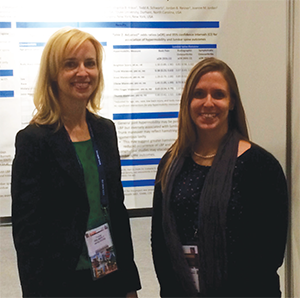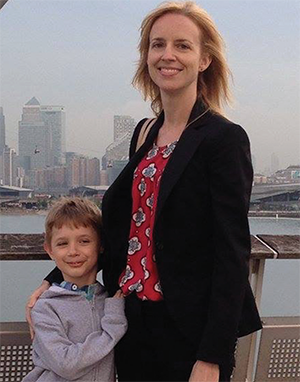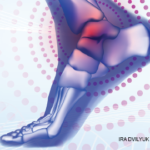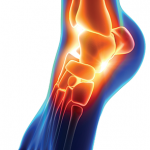
Rawpixel.com/shutterstock.com
This past June, Yvonne Golightly, PT, MS, PhD, helped launch an international group of researchers focused on foot and ankle osteoarthritis.
At the time, Dr. Golightly, an assistant professor in the department of epidemiology at the University of North Carolina (UNC), Chapel Hill, N.C., was attending the American College of Rheumatology (ACR)/European League Against Rheumatism (EULAR) Exchange Program in London. The Annual European Congress of Rheumatology gathers experts from the around the world to share clinical and research ideas, skills and knowledge within rheumatology.
What made this opportunity even more special for Dr. Golightly was that she was the first health professional—or non-rheumatologist—in the U.S. to be awarded travel and registration expenses by the ACR to attend the conference.
“I was alerted by a colleague about applying for this award,” she says, adding that eight other individuals from the U.S.—all rheumatologists—were also award recipients. “I looked at this as an opportunity to get to meet and collaborate with other researchers and clinicians who worked in arthritis in other parts of the world.”
International OA Working Group

Dr. Golightly
Dr. Golightly arrived several days early to allow time to travel to the University of Loughborough to meet with researchers from The Arthritis Research UK (United Kingdom) Centre for Sport, Exercise and Osteoarthritis, a consortium of seven British universities. The side trip was included in the award. Dr. Golightly says they began to develop a plan to combine their research and data sources to enhance universal knowledge of this field.
“By the end of the conference, we had developed an international foot and ankle osteoarthritis working group,” says Dr. Golightly, who is also a faculty member at the Thurston Arthritis Research Center, housed on the UNC campus. “Since then, we have moved forward with a couple of projects and are trying to grow this group. There are many researchers throughout the world who study the foot and ankle, such as those in Australia, whom we’d like to join our group.”
Part of the group’s value will be its growing collection of data on varying populations in different geographic regions. Although some of the research may parallel, complement or perhaps overlap each other, she says they are developing common ground on what will be studied and how it will be measured.

Dr. Golightly presents her work to a colleague, Dr. Alyssa Dufour, at EULAR.
Although she had previously emailed or skyped some of these researchers prior to the conference, she says meeting them in person somehow improved the dynamic of their working relationship.
“There was something different about meeting them face-to-face, getting to see their institution and then discussing ideas,” she adds. “That’s what helped propel our work forward.”
Advancing Knowledge
While presenting three posters on her arthritis research at the conference, she also met other researchers who are investigating joint hypermobility, a topic of interest she is currently studying. Dr. Golightly says their constructive feedback was “especially helpful” and prompted her to develop ideas for future research.
“We had some conversations about different ways to define joint hypermobility,” she says, explaining that it’s a condition in which a person’s joints have a greater degree of mobility than what is normally expected. “The project I’m working on now is primarily focusing on one definition. So now we’re exploring a few different definitions that will help determine if our results are robust.”
As part of the conference’s agenda, Dr. Golightly participated in a daylong site visit at the Centre for Experimental Medicine and Rheumatology at the William Harvey Research Institute and attended a half-day workshop for ACR/EULAR awardees who had participated in the 2015 ACR/ARHP Annual Meeting. She says health professionals learned from each other about advances in arthritis research and treatment.
‘By the end of the conference, we had developed an international foot & ankle osteoarthritis working group,’ says Dr. Golightly. … ‘There are many researchers throughout the world who study the foot & ankle, such as those in Australia, whom we’d like to join our group.’

Dr. Golightly and her son, between EULAR meetings.
In the past, Dr. Golightly says, most of the conferences she attended were held in the U.S. This program gave her the opportunity to connect with world-class researchers and clinicians throughout Europe whom she may have never met due to a variety of reasons, including limited travel funds. Dr. Golightly and other members of her working group are trying to secure funds for one UK researcher to visit her at UNC.
She encourages other health professionals in rheumatology to apply for this award so they can attend future ACR/EULAR Exchange Programs. The next one will be held in Madrid, from June 14–17. Learn more.
“I left the conference with more ideas than initially anticipated,” says Dr. Golightly. “It was a valuable experience connecting with other researchers from different countries whom I normally don’t get to see. Personally meeting with them has definitely helped develop my research and career in rheumatology.”
Carol Patton is a freelance writer based in Las Vegas.

